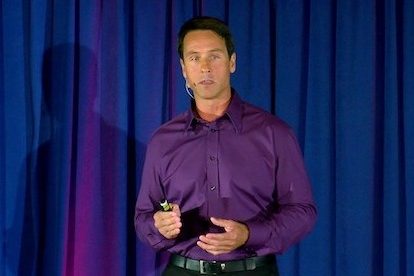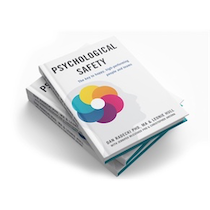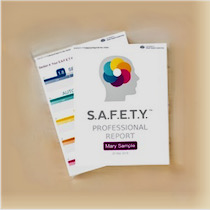Brain-based Coaching: The S.A.F.E.T.Y.™ Approach
First published on International Coach Federation Site
We don’t know how many coaches there are in the world. It might be intriguing to find out, but probably not that useful!
We believe, however, that there are almost as many definitions of coaching as there are coaches. At the Academy of Brain-based Leadership (ABL), our own simple definition is “Facilitating thinking in others” but, since we are going to be presenting the Science of Coaching in an ICF conference, we thought we should be guided by the definition of coaching as presented by the ICF:
“Coaching is partnering with clients in a thought-provoking and creative process that
inspires them to maximize their personal and professional potential.”
OK. We can go with that definition and we first thought that we should focus on “thought-provoking”, “creative” and “inspires”, and expand upon the science that underpins these three words. As we thought more about that approach, we surmised that there might be a meta-process going on that could be explained by some fundamental scientific underpinnings. The need to be “thought-provoking”, “creative” and “inspiring” as a coach, requires not only a number of personal characteristics, but also the need to be able to keep them all in mind, all of the time, during a coaching discussion. This made us think, not just about the specific activities identified in the ICF definition, but to the meta-process of keeping any given activity in mind, even for a brief period. Our brains aren’t good at that!
How many of you have gone into the kitchen with something specific in mind, only to get there and wondered why you went there in the first place? So how do we, as coaches, identify something that we want to keep in mind and keep it there? Further, how do we help other people develop that skill?
This new approach led us immediately to words like self-awareness, mindfulness, and resilience, and to their opposites i.e. concepts of bias, habits and triggers; further, it reinforced our understanding of the difficulty that our brains have in keeping any given activity in mind.
Before we go any further, we have already used a word that we would like to distance ourselves from. We would like to distance ourselves from “the mind”; when we refer to the “mind” we are going to be talking about the brain. The difference between the two, no matter how fascinating, is the subject of a completely different discussion!
In our presentation, we will start by addressing the fundamentals of how the brain works; this includes:
- the central organizing principle of the brain
- the balance between conscious and nonconscious processing of the brain
- the huge impact that the nonconscious has on our ability to be self-aware and mindful
- the chemical result of threat and reward
- the push and pull between the limbic system and the prefrontal cortex
- the similarity of the brain’s reactions to social threat and physical threat
We will follow this brain-based foundation with a couple of models to think about social threats. By way of general applicability, we will outline the S.A.F.E.T.Y.™ Model as a way for people to understand their social triggers; with regard to an explicit application for coaching, we will present the S.A.F.E. Coaching Model™.
Finally, we will address how all of our reactions and actions, as coaches or clients, are driven by deep-seated biases, habits and triggers. Our reactions to stress and our ability to maintain self-awareness, mindfulness and to become more resilient, are the results of these deep-seated tendencies. We will use the concept of the S.A.F.E. Coaching Model™ as a technique for coaches to keep their clients in a reward oriented state while coaching them in accordance with good ICF principles.
In all of ABL’s work, we use a three part structure that we call “What”, (The Data) “So What” (The Impacts) and “Now What” (The next steps).
En route, we hope that we will provide our audience with a lively presentation, some audience participation and some great take away tools while having some fun learning a brain-based approach to the meta-processes of being self-aware, mindful and resilient.
The Academy of Brain-based Leadership has assessments, training, and coaching to support team work and help facilitate companies through change, build strong teams, and create resilient team members. Learn more about S.A.F.E.T.Y.™ in the book “Psychological Safety: The key to happy, high-performing teams” for insights into how it can help your company improve, or take the S.A.F.E.T.Y.™ assessment to find out your top sensitivity for free or upgrade to receive your full profile report.











